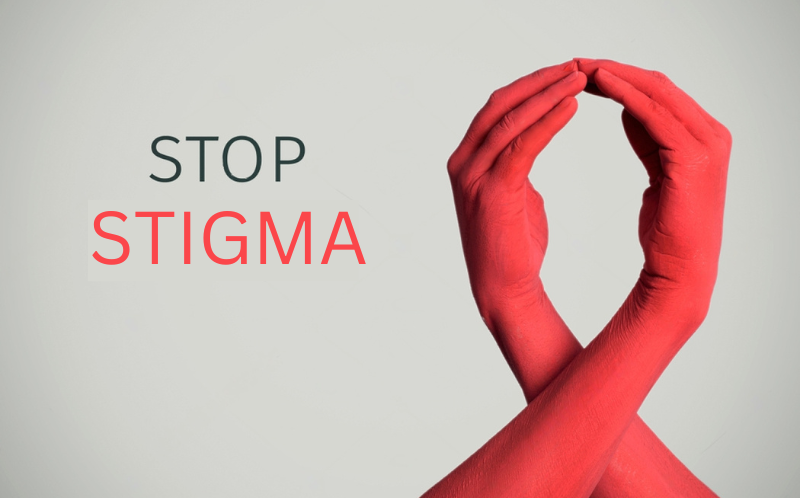In recent years, healthcare in Illinois has been undergoing a profound transformation, thanks to the integration of medical marijuana. One pivotal aspect of this revolution is the advent of medical marijuana (MMJ) cards. MMJ cards have not only changed the way patients access cannabis-based treatments but have also altered the perception of weed in the medical field.
How MMJ Cards Are Revolutionizing Healthcare With A Transformative Shift On Patient Care
1. Access to Alternative Medicine
Medical marijuana cards provide patients in Illinois with legal access to a wide range of cannabis-based treatments. This revolutionary change means that individuals suffering from various medical conditions, from chronic pain to epilepsy, can explore alternative therapies that may be more effective or have fewer side effects compared to traditional pharmaceuticals. It’s a shift from a one-size-fits-all approach to healthcare to a more patient-centric model.


2. Personalized Treatment Plans
With medical weed cards in Illinois, patients can work closely with healthcare professionals who specialize in cannabis-based medicine. These experts can create personalized treatment plans tailored to the patient’s specific condition, symptoms, and preferences. This level of customization enhances the effectiveness of treatment and improves patient outcomes. The days of generic prescriptions are over; now, it’s about tailoring therapy to the individual.
3. Reduction of Stigma
One significant way medical marijuana cards are revolutionizing healthcare in Illinois is by destigmatizing cannabis. Historically, weed has been associated with recreational use and legal implications. The medical aspect has shifted the conversation, and people are recognizing cannabis as medicine instead of a “gateway drug” like tobacco products.
Possessing a medical marijuana card signifies that the individual is using cannabis as a legitimate form of treatment, effectively challenging outdated stereotypes. This shift in perception promotes more open and informed discussions about marijuana’s potential medical benefits.


4. Enhanced Safety and Regulation
Medical weed programs in Illinois are subject to strict regulations that ensure product safety and quality. This includes thorough testing for contaminants and standardization of cannabinoid concentrations. As a result, patients can trust that the products they receive are safe and consistent, reducing the health risks associated with unregulated cannabis. This newfound confidence in product quality is a critical aspect of the medical marijuana revolution.
5. Promotion of Research Opportunities
The widespread adoption of medical marijuana cards has fueled an increase in research on cannabis-based treatments. Healthcare professionals in Illinois now have the means to conduct more clinical trials and studies, leading to a better understanding of the therapeutic potential of cannabis and its specific applications in healthcare. As more patients participate in these studies, the body of evidence supporting medical weeds efficacy continues to grow.


6. Holistic Approach to Wellness
Medical marijuana cards encourage a holistic approach to wellness in Illinois. Patients and healthcare providers are increasingly considering the mind-body connection and exploring complementary treatments that incorporate cannabis alongside other modalities like yoga, meditation, and nutrition. This broader perspective acknowledges that health is not merely the absence of disease but a state of physical, mental, and emotional well-being.
7. Expanding Legalization
As Illinois and other states embrace medical weed programs, the revolution in healthcare continues to gain momentum. The growing acceptance of medical cannabis paves the way for better patient access and a broader range of treatment options. Patients are no longer limited by geographic location when seeking cannabis-based treatments, making these therapies accessible to a more extensive and diverse population.


8. Patient Empowerment
Perhaps one of the most significant aspects of medical weed as medicine in Illinois is the empowerment of patients. With a medical marijuana card, individuals have greater control over their healthcare choices. They can actively participate in treatment decisions, explore various strains and delivery methods, and monitor their progress. This shift from a passive patient to an informed, empowered healthcare consumer is reshaping the doctor-patient relationship.
9. Economic Impact
The medical marijuana industry is not only changing healthcare but also contributing to economic growth in Illinois. Legalization has led to the emergence of dispensaries, cultivation facilities, and ancillary businesses, creating jobs and stimulating local economies. Tax revenue generated from the sale of medical weed has been channeled into public services, further benefiting communities.


10. Challenges and Future Directions
Despite the numerous benefits, the medical marijuana movement faces challenges in Illinois. These include varying regulations across jurisdictions, the need for further research, and addressing concerns about misuse. As more states and countries grapple with these issues, it’s likely that solutions will be found to maximize the benefits while minimizing risks.
The emergence of medical marijuana cards in Illinois signals a promising shift in healthcare. These cards are not merely documents; they’re beacons illuminating a path to a more patient-focused, holistic, and empowered future. With the stigma surrounding cannabis slowly fading, research flourishing, and economies of scale benefiting, the medical weed movement shows no signs of slowing down. As we move forward, let’s remember that better health and wellness are within reach, one medical marijuana card at a time.
Illinois Medical Weed FAQs
A medical marijuana card, also known as a cannabis card, is a state-issued identification that allows individuals to legally access and use medical cannabis for qualifying medical conditions in Illinois. To obtain one, you must first consult with a licensed physician who can recommend medical marijuana as a treatment option.
Qualification criteria vary by state, but in Illinois, you may be eligible for a medical marijuana card if you have a debilitating medical condition, such as cancer, epilepsy, multiple sclerosis, or post-traumatic stress disorder (PTSD). It’s essential to consult with a qualified physician to determine your eligibility.
Medical marijuana has shown promise in managing various medical conditions, including chronic pain, epilepsy, nausea, anxiety, and more. The specific conditions it can help treat may vary depending on state regulations and a patient’s unique circumstances.
You can search for registered physicians on the Illinois Department of Public Health’s website or consult with specialized clinics like 1Body1Life Wellness Clinic that focus on medical marijuana evaluations and recommendations.
The process typically involves consulting with a physician, receiving a written recommendation, applying for a medical marijuana card through the state’s program, and, upon approval, receiving your card in the mail.
Some states offer reciprocity, allowing out-of-state medical marijuana cardholders to purchase and use medical cannabis while visiting. However, it’s essential to research each state’s laws and regulations to ensure compliance.
While having a medical marijuana card provides legal protection for medical cannabis use within state boundaries, it may not guarantee protection in all situations, such as employment-related drug testing. It’s crucial to be aware of the legal implications and consult with legal experts if needed.
Medical weed is not covered by health insurance in Illinois or most other states due to federal restrictions. There are a few exceptions. Workers comp insurance covers medical weed in these 5 states:
- New Mexico
- New Jersey
- Connecticut
- Maine
- Minnesota
In Illinois, patients are responsible for the costs associated with consultations, evaluations, and purchasing medical cannabis products.
Side effects can vary based on the individual and the strain of medical cannabis used. Common side effects may include dizziness, dry mouth, increased appetite, and changes in mood. Consulting with a healthcare professional can help manage side effects.
The medical marijuana industry has led to job creation, tax revenue generation, and economic growth in Illinois. Dispensaries, cultivation facilities, and related businesses have provided employment opportunities and contributed to local economies through tax revenue.
Key Takeaways
1. Enhanced Patient Access:
Medical marijuana cards provide legal access to alternative treatments, empowering patients with a broader range of healthcare options.
2. Personalized Treatment Plans:
Patients can collaborate with specialized physicians to create customized treatment plans tailored to their specific medical conditions and preferences.
3. Reducing Stigma:
Medical marijuana cards challenge outdated stereotypes by legitimizing cannabis as a medical treatment and fostering open discussions about its benefits.
4. Safety and Regulation:
Strict regulations ensure product safety and quality, mitigating health risks associated with unregulated cannabis.
6. Holistic Wellness:
Patients and healthcare providers are embracing holistic approaches, combining cannabis with practices like yoga and nutrition for overall well-being.

5. Research Opportunities:
The adoption of medical marijuana cards spurs increased research, expanding our understanding of cannabis-based therapies.
7. Expanding Legalization:
Growing acceptance of medical cannabis programs across states and countries enhances patient access to treatment options.
8. Patient Empowerment:
Medical marijuana cards empower individuals to actively participate in their healthcare decisions, fostering a more informed and engaged patient population.
9. Economic Impact:
The medical marijuana industry contributes to economic growth through job creation, tax revenue, and local economic stimulation.
10. Challenges and Solutions:
While challenges exist, ongoing efforts to address varying regulations and research needs are driving solutions to maximize benefits and minimize risks.
In the dynamic landscape of modern healthcare, medical marijuana cards have emerged as powerful tools for improving patient care and options for alternative medical treatments. These cards provide a gateway to alternative therapies, reduce stigma, enhance safety, and promote research and natural forms of medical treatments with potentially fewer side effects than some prescription medications.
Does Marijuana Have the Potential To Revolutionize Healthcare?
Providing educational resources offers patients empowering personalized treatments. There is growing body of evidence supporting the use of medical marijuana to revolutionize healthcare, bringing hope and relief to countless individuals worldwide.
As the healthcare industry continues to transform, you can look forward to a future where healthcare is not just about treating ailments but nurturing overall well-being, one patient at a time.



